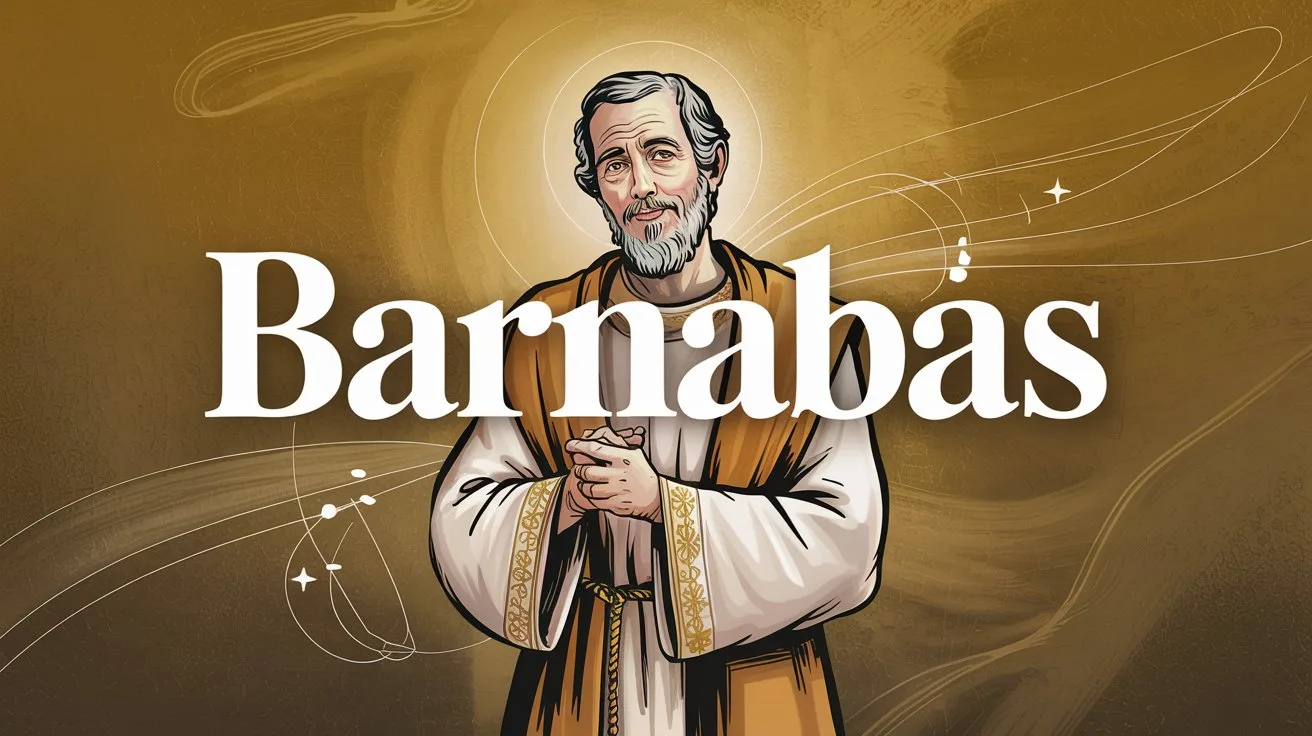Barnabas first appears in Acts 4:36–37: “
And Joses, who was also named Barnabas by the apostles (which is translated Son of Encouragement), a Levite of the country of Cyprus, having land, sold it, and brought the money and laid it at the apostles’ feet.”
His original name was Joses (or Joseph), but the apostles gave him a new name, Barnabas, which means “Son of Encouragement.” This alone tells us the type of man he was. He was a Levite by birth, coming from the priestly tribe of Israel, but he was also a native of Cyprus, a Greek-speaking Jew.
This puts his life in the early apostolic era, shortly after the resurrection and ascension of Jesus Christ: approximately around 30–60 AD. He lived during the foundational years of the Church when the gospel began to spread from Jerusalem into the Gentile world.
From the beginning, Barnabas is seen as a man of great generosity. He sold his land and gave the proceeds to the apostles, a selfless act that revealed his commitment to the kingdom of God and his trust in the community of believers. This placed him in direct contrast to Ananias and Sapphira, who held back a portion deceitfully (Acts 5:1–10).
The Embracer of Saul
One of Barnabas’ most defining moments came in Acts 9:26–27, after Saul (Paul) was converted:
“And when Saul had come to Jerusalem, he tried to join the disciples; but they were all afraid of him, and did not believe that he was a disciple. But Barnabas took him and brought him to the apostles. And he declared to them how he had seen the Lord on the road, and that He had spoken to him, and how he had preached boldly at Damascus in the name of Jesus.”
While others doubted Saul’s conversion, Barnabas believed. He advocated for him, risking his own reputation to introduce him to the apostles. Without this act, Paul’s entrance into the early Church community could have been delayed or denied. Barnabas recognized the work of God in Paul and was willing to stand in the gap.
Apostle and Missionary Partner
Barnabas is referred to as an apostle in Acts 14:14:
“But when the apostles Barnabas and Paul heard this, they tore their clothes and ran in among the multitude, crying out.”
Though not one of the original twelve, he held the title of apostle as a messenger sent directly by the Holy Spirit (Acts 13:2–3).
In Acts 11:22–24, when the Church in Jerusalem heard that Gentiles in Antioch were believing, they sent Barnabas to see what was happening:
“Then news of these things came to the ears of the church in Jerusalem, and they sent out Barnabas to go as far as Antioch. When he came and had seen the grace of God, he was glad, and encouraged them all that with purpose of heart they should continue with the Lord.”
This man rejoiced at the work of God among the Gentiles. He then sought out Saul in Tarsus and brought him to Antioch. For an entire year, they ministered together there, and Acts 11:26 concludes, “And the disciples were first called Christians in Antioch.”
The First Missionary Journey
Barnabas and Paul were set apart by the Holy Spirit in Acts 13:2 for a missionary journey. Barnabas was listed first at the start of the journey (Acts 13:2–3), which typically indicated leadership. They traveled together through Cyprus and Asia Minor, preaching the gospel with boldness and power. His role was not secondary; he was a spiritual pioneer.
Conflict and Separation
In Acts 15:36–41, a sharp disagreement arose between Paul and Barnabas regarding John Mark, Barnabas’ cousin (Colossians 4:10). Paul didn’t want to take Mark because he had abandoned them previously, but Barnabas insisted. The disagreement was so intense that they parted ways: Barnabas took Mark to Cyprus, and Paul took Silas.
This moment, though painful, reveals Barnabas’ deep character. He chose restoration and believed in second chances. His investment in Mark bore fruit, as Mark later became a trusted companion to Paul again (2 Timothy 4:11) and is the author of the Gospel of Mark.
What Does His Role Reveal?
Barnabas was a bridge builder. He was a man of encouragement, generosity, and peace. He wasn’t afraid to take a stand for someone rejected. He wasn’t seeking glory: he was a faithful laborer in the gospel, content to fade into the background when Paul took the lead.
His actions demons/”>demonstrate that leadership in the Church is not always about being out front. Sometimes it’s about being the one who lifts others up and opens the door for them to shine.
He never wrote an epistle, never led a church that we know of, and isn’t quoted much (but he changed the course of Christian history by believing in Paul and mentoring Mark).
My Final Thoughts
Barnabas lived during one of the most explosive times in Church history. He wasn’t the most famous apostle, but he was foundational. His courage, humility, and heart for reconciliation teach us that the kingdom of God is built not just by preachers but by encouragers. We need more Barnabases: men and women who will sell their land, lift up the rejected, and believe in the potential of others when no one else does.





 Get the book that teaches you how to evangelize and disarm doctrines from every single major cult group today.
Get the book that teaches you how to evangelize and disarm doctrines from every single major cult group today.